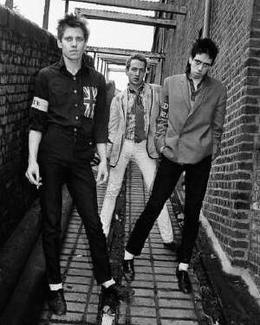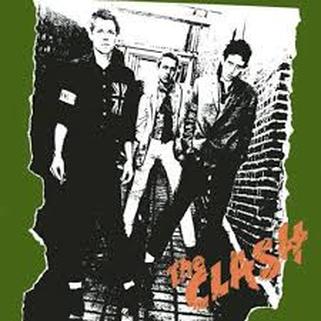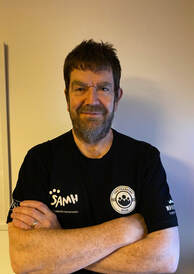|
1976 was the year of the first 'punk' singles in Britain, with Stiff unleashing The Damned's 'New Rose' on 26th October, four weeks before the Sex Pistols more incendiary 'Anarchy in the UK' on the EMI label. By 1977 the rest of the first wave of British punk bands had caught up, and this year will see the 40th anniversary of a slew of superb (and many not so superb) single and album releases. The Clash released their eponymous debut album on this day in 1977. Recorded over three weekend sessions at a cost of £4,000, its 14 tracks hurtle by at a breakneck running time of 35 minutes 18 seconds, from '48 Hours' lasting barely 90 seconds, to their anthem 'Garageland', clocking in at just over three minutes. The only exception to the breathtaking short, sharp shocks is their cover of the Junior Murvin/Lee Perry reggae classic 'Police and Thieves', a 6 minute masterpiece. The majority of the tracks epitomise the early punk ethic of avoiding overblown rock trappings. Musicianship is kept to a minimum. Mick Jones unleashes a killer solo, it's the brevity of execution that counts. There was always a rivalry between The Clash and the Sex Pistols but by the time this album ended up in the shops the latter had already sacked bassist Glen Matlock and replaced him with Sid Vicious, a punk icon who couldn't actually play bass. The spraypainted writing was on the wall. Despite that classic quartet ('Anarchy in the UK,' 'God Save the Queen,' 'Pretty Vacant' and 'Holidays in the Sun') that are among the most mesmerising rock n'roll 45s ever, their meteoric rise was already heading for a crash and burn. For The Clash, however, their best years still lay very much ahead. When The Clash was released I was 14 and mostly listening to heavy metal. I relied on John Peel, Old Grey Whistle Test or Top of the Pops (TOTP) to catch up with rock bands, 'old wave' or 'new wave.' Although I'd seen The Stranglers, The Jam and The Adverts racing through their singles on the latter, as well as footage of the Pistols playing 'Pretty Vacant,' The Clash steadfastly boycotted TOTP. Eventually an older cousin leant me a cassette of The Clash album. I was hooked from Terry Chimes' staccato drum intro to 'Janie Jones' right through to the explosive chorus of "We're a garage band!" The Clash were so important because they never towed any line. Aside from disowning miming on TOTP, as the punk scene moved on they refused to rely on endlessly rehashing past glories as so many of their contemporaries went on to do (and some are still doing!) They continually reinvented themselves, experimenting with a dizzying array of musical styles, while keeping their core message intact. Of course there were contradictions aplenty, their first B-side pillorying stadium bands ("No Rolling Stones") while five years later they would open for The Who at New York's Shea Stadium. But when they sang "I don't wanna hear about what the rich are doing" it seemed heartfelt. This was underscored by the fact Mick Jones crafted most of these songs while living with his grandmother in her 18th floor council high rise in West London. 'Janie Jones,' track number one, happens to be Martin Scorcese's favourite British rock n' roll song. 'I'm So Bored With the USA', although starting life as a sardonic love song entitled 'I'm So Bored With You,' quickly became politicised, against a climate of the US meddling in South American politics. (Forty years on, only the geographical location has altered.) 'Garageland', the climactic track, was a response to a snooty NME journalist whose less-than-complimentary live review suggested, "The Clash are the kind of garage band who should be returned to the garage immediately, preferably with the engine running, which would undoubtedly be more of a loss to their friends and families than to either rock or roll." Joe Strummer opened with the line: "Back in the garage with my bullshit detector/carbon monoxide making sure it's effective." Musically, my own path crossed with The Clash once. I played in a band called The Axidents who once supported another old school punk band, 999 at Edinburgh's Citrus Club. 999's drummer, Pablo LaBrittain, a former schoolfriend of Joe Strummer, was The Clash's first drummer, prior to Terry Chimes taking over. A tenuous link, but having shared a stage with a onetime member of The Clash is kudos enough for me! Not many albums still sound exhilarating 40 years on. Recently I listened to a bit of Deep Purple, one of those bands I was into just before the likes of The Clash and the Pistols swept through my teenage musical tastes in glorious hurricanes of anger and melody. Compared to The Clash, Machine Head just sounded dull - tired, cliched, devoid of originality and full of extended, showboating solos. But even after four decades The Clash album remains essential listening. Cranking up the volume really high, Mick Jones, Paul Simenon, Topper Headon, and the late, great Joe Strummer, still haul me back. Gaudy badges weighing down the lapels of my school blazer, for a transient but beautiful moment, their music was the centre of my universe. Comments are closed.
|
|



 RSS Feed
RSS Feed
